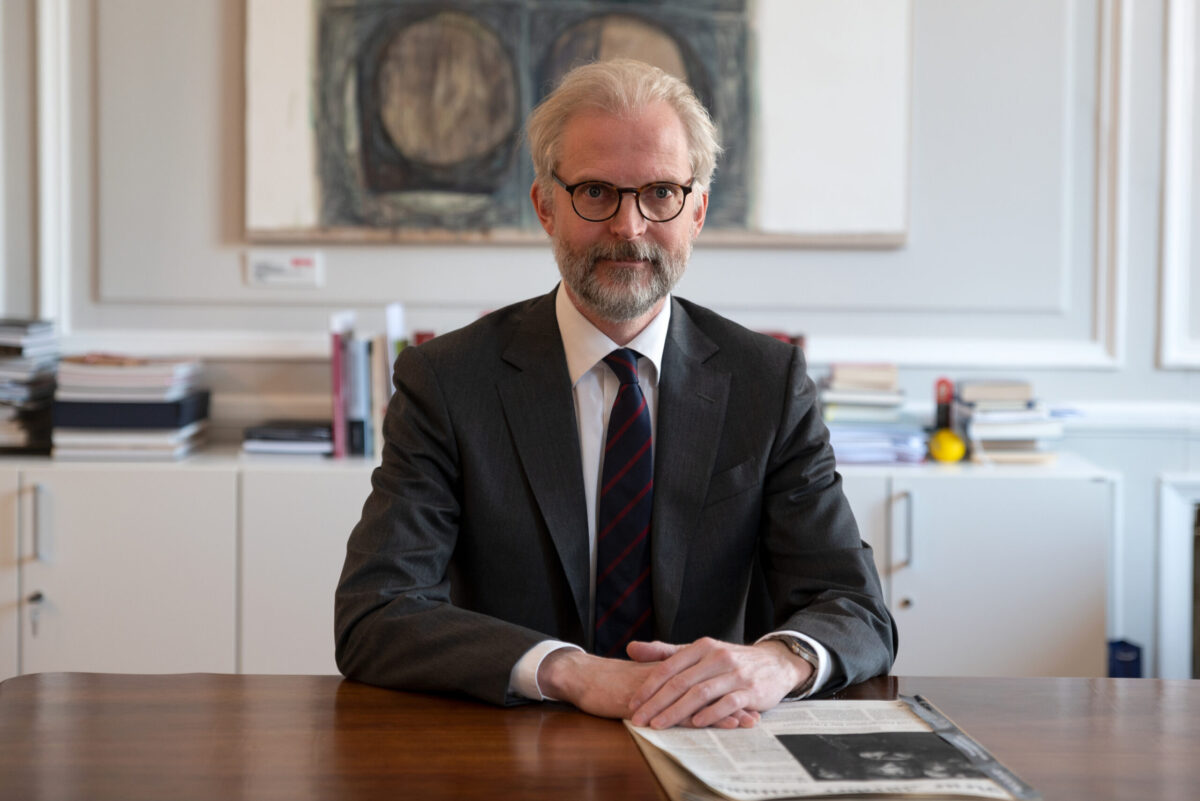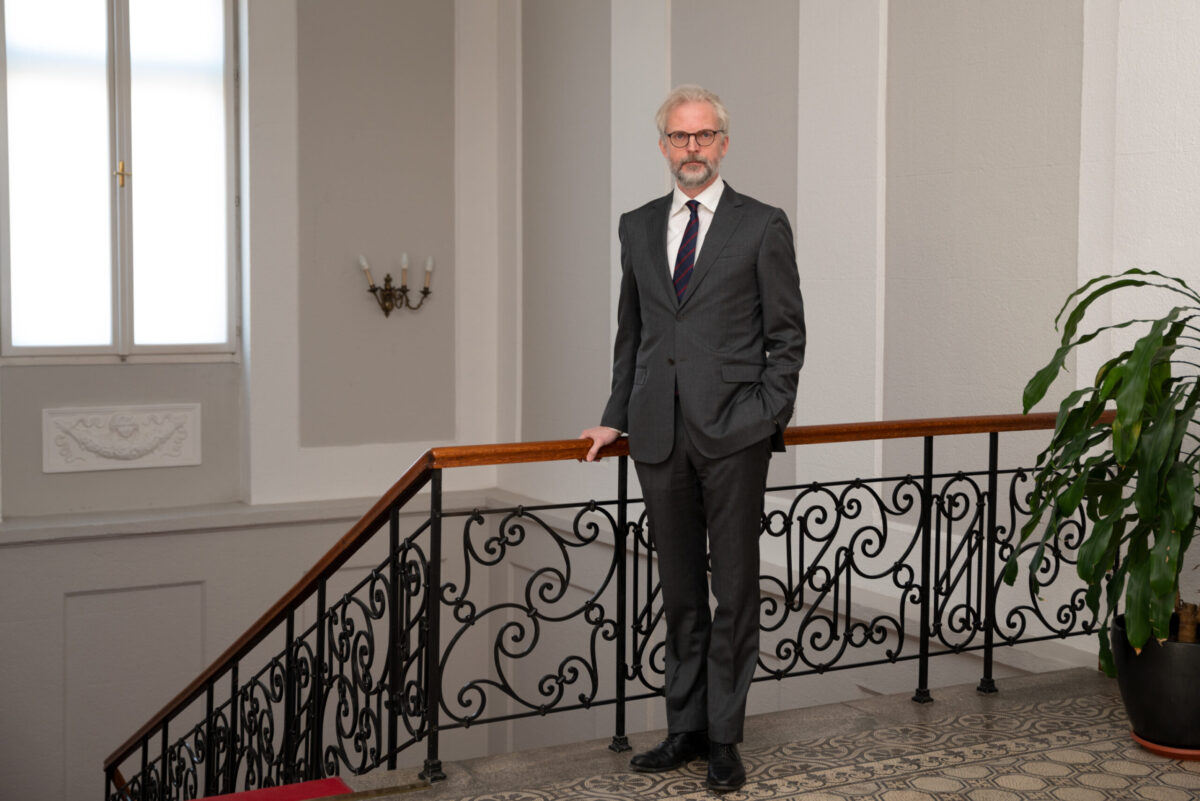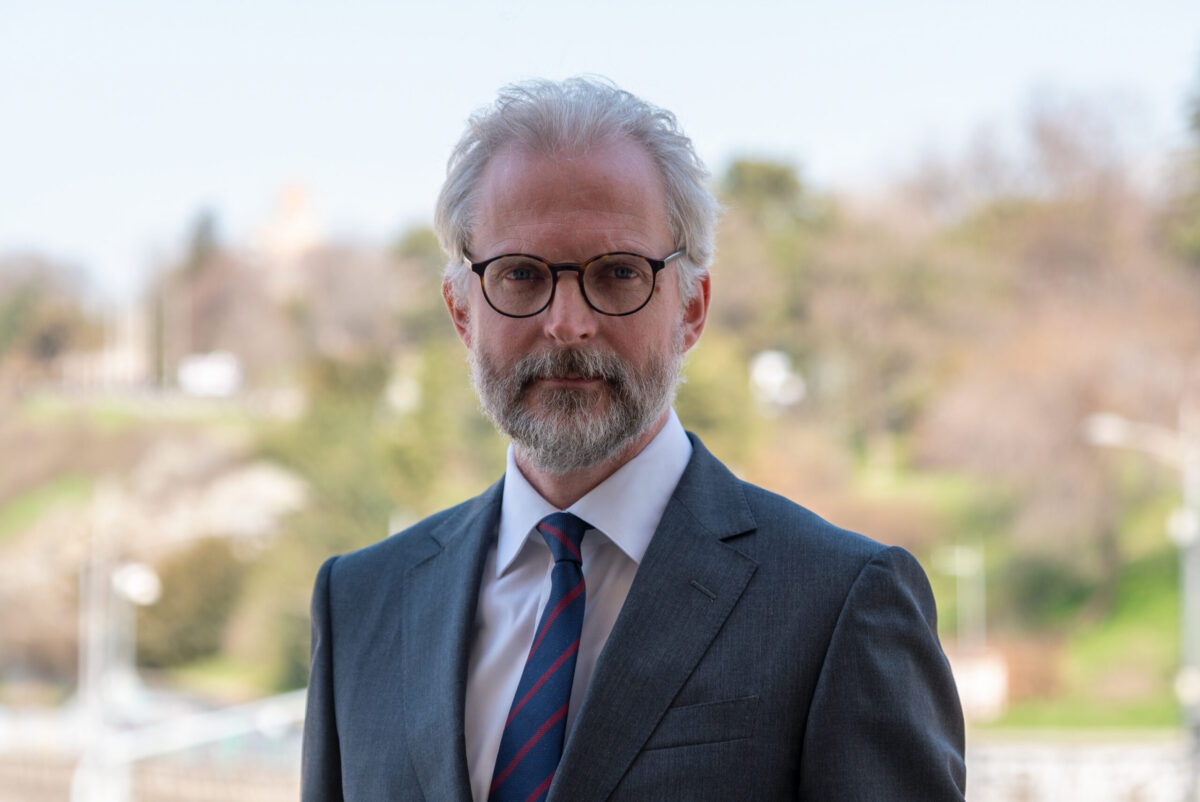Austria is a firm and vocal supporter of the EU enlargement towards Southeastern Europe and this will remain a foreign policy priority for us. We continuously advocate for enlargement and see no other alternative to full membership of the Western Balkan States.
For the new edition of the Diplomacy&Commerce magazine- In Focus Austria, former Ambassador of Austria to Serbia, H.E. Nikolaus Lutterotti, spoke about Austrian companies in Serbia, Austria’s economy, military cooperation with Serbia, illegal migration and Serbia’s path to EU membership.

More than 400 Austrian companies are active in Serbia and provide over 22,000 jobs which makes Austria one of the most important investors. Is there a possibility for further expansion?
Austria has been one of the largest investors in Serbia for over a decade. Most of the 400 companies you are referring to pursue a long-term strategy, as witnessed during the pandemic when they stayed in Serbia. There is definitely a possibility for further expansion, as following the pandemic, more and more Austrian companies are interested in finding nearshoring solutions. Therefore, we encounter rising interest in new investments or cooperation in Serbia. Since Serbia belongs to our immediate neighbourhood, Serbia’s economic prosperity and the further strengthening of economic ties are clearly in Austria’s interest. Now, of course, the Russian aggression in Ukraine has changed not only the geopolitical situation but is also affecting the economic outlook. It remains to be seen how severely the war will impact the economies of our countries.
The Austrian government, together with the Austrian Chamber of Commerce, has initiated a global economic outreach program called “ReFocus Austria” which aims to promote Austrian businesses and focuses on the core competencies of Austria’s economy: renewable energy, e-mobility, sustainability, digital transformation, infrastructure. Is there a place for Serbian companies and Serbia in general in that program?
ReFocus was initiated with the aim to support the Austrian export economy, the competitiveness of business as well as tourism after the economic impact of the Covid-19 pandemic. Austria lies in the heart of Europe, so international interconnectedness is crucial for our country. ReFocus aims at opening doors and paving the way for our companies on international markets in order to expand investments and secure jobs in Austria, with a new momentum following the pandemic. Among other topics, the green economy, which is crucial not only for Serbia, is in the focus of the program, and I am convinced that there is a place for stronger cooperation in this field.

Serbia and Austria signed a military cooperation agreement in September 2021. This agreement was signed by the Austrian and Serbian Ministers of Defense. Can you tell us something about this agreement?
The military cooperation agreement signed between Austria and Serbia in September 2021 aims to reach interoperability of the armed forces for common participation of future EU and/or UN-led peace support operations as well as for cooperation within cross-border disaster management measures following pandemics, blackouts, and natural disasters, which require a fast and common response.
Illegal migration remains one of the biggest challenges in the European Union, but also in Austria. Has the situation improved in the recent period and what are the future plans?
Managing migration requires cooperation between all countries involved, especially when it comes to the fight against illegal migration, which has again increased in 2021. Austria is combating illegal migration through increased bilateral cooperation, particularly with the Western Balkan countries. In this regard, the Austrian Interior Ministry has deployed a bilateral police contingent to support the Serbian border police. Furthermore, the Joint Coordination Platform was created for the area of asylum and migration to strengthen operational cooperation on border management, human smuggling, return and asylum.
“ReFocus aims at opening doors and paving the way for our companies on international markets in order to expand investments and secure jobs in Austria, with a new momentum following the pandemic”
The Russian aggression in Ukraine has triggered an unprecedented wave of internally displaced people and refugees in Europe. The EU and Austria have reacted promptly and effectively to provide for these people in the months and years to come. Persons fleeing Ukraine are granted a temporary right of residence in Austria until 3 March 2023. Temporary protection ensures access to the labor market, education and medical care. Apart from protective equipment and medical goods that were sent to Ukraine, the Foreign Ministry’s Foreign Disaster Fund (AKF) provides 15 million euros in humanitarian aid for the Ukrainian population in addition to 2,5 million euros foreseen for 2022 before the outbreak of the war.
Austria strongly supports Serbia on its path to EU membership. What, in your opinion, are the reasons for this deadlock for Serbia, and why Serbia is not advancing in the EU integration process?
Austria is a firm and vocal supporter of the EU enlargement towards Southeastern Europe and this will remain a foreign policy priority for us. We continuously advocate for enlargement and see no other alternative to full membership of the Western Balkan States. Serbia has made some progress in the EU integration process lately, as underlined by the opening of Cluster 4 on the green agenda and sustainable connectivity last December. However, more progress on reforms is necessary, in particular in the area of independence and efficiency of the judiciary, the fight against corruption and organized crime, and freedom of media. These areas are interlinked and therefore of fundamental importance. Besides the adoption of reforms, the political will for their implementation in practice is also crucial. Serbia has already proved that it is able to realize reforms thoroughly, especially in the area of economy, where the implementation of reforms yielded fruit.
“The project in Serbia, will help to increase the number of households connected to fixed broadband, and thereby strengthen the access to economic opportunities for a large scale of population”
Apart from internal reforms, Serbia’s alignment with EU foreign policy positions is important. The EU welcomed Serbia’s alignment with some of the EU’s positions regarding the Russian aggression in Ukraine, in particular its clear condemnation in the UN General Assembly. There is a clear expectation that EU candidate countries show strong alignment, including with the sanction’s regime.
Digital infrastructure is the main key to economic growth. Austria is the current WBIF Co-Chair, which supports the introduction of high-speed broadband Internet in rural areas in Serbia. How is this project progressing and what has been done so far?
The government digitalization project is supported by the European Bank for Reconstruction and Development (EBRD) as well as by bilateral donors under the Western Balkan Investment Framework (WBIF). The support entails an €18 million EBRD loan and a €1.7 million WBIF bilateral donors’ grant, aiming at financing the construction of fibre broadband infrastructure in rural regions of the country. Digital infrastructure is essential for economic growth. The digitalisation process is destined to continue and will remain one of the key forces shaping developments around the world – including in the Western Balkans. The project in Serbia will help to increase the number of households connected to fixed broadband, and thereby strengthen the access to economic opportunities for a large scale of population. Adequate high-speed internet infrastructure is also crucial for rural schools and students in rural areas.
Following Austria’s co-chairmanship in the WBIF, Italy has taken over as WBIF Bilateral Donor co-chair in July 2021.

Austria is the first country in the European Union to introduce mandatory vaccination against COVID-19. What is the reaction of the Austrian people to that measure?
The decision to introduce mandatory vaccination in Austria was taken at a time when the pandemic was in an intensive phase due to the delta wave and the vaccination rate was still too low. The situation in the intensive care units was strained and filled with people who did not get the vaccination and had Covid-19. The government wanted to escape this vicious circle of unpredictable infection waves followed by lockdowns, which is only possible when a higher percentage of the population is vaccinated.
“The government decided to suspend fines for non-vaccinated people for the time being. The situation will be assessed in light of new variants”
The decision was not an easy one but the measure appeared absolutely necessary at that point. With the Omicron variant, which spreads fast but has a much lower hospitalization rate, there is less pressure on the public health system. Therefore, the government decided to suspend fines for non-vaccinated people for the time being. The situation will be assessed in light of new variants.
There are a lot of Serian workers in Austria and their travelling became more and more difficult due to COVID-19. Do you think that the pandemic will subside in 2022?
No one knows how the pandemic will develop in future, but I am convinced that we reached a point where we learned how to continue our lives despite the existence of the virus. Certain measures will remain in place or will be reintroduced if the situation requires. In 2022, we are not as helpless as we used to be in 2020 – we know a lot about the virus, about the effectiveness of measures, and with the available vaccines we have a strong remedy to protect ourselves to the best extent possible. Science has once again proven its immense value to society.